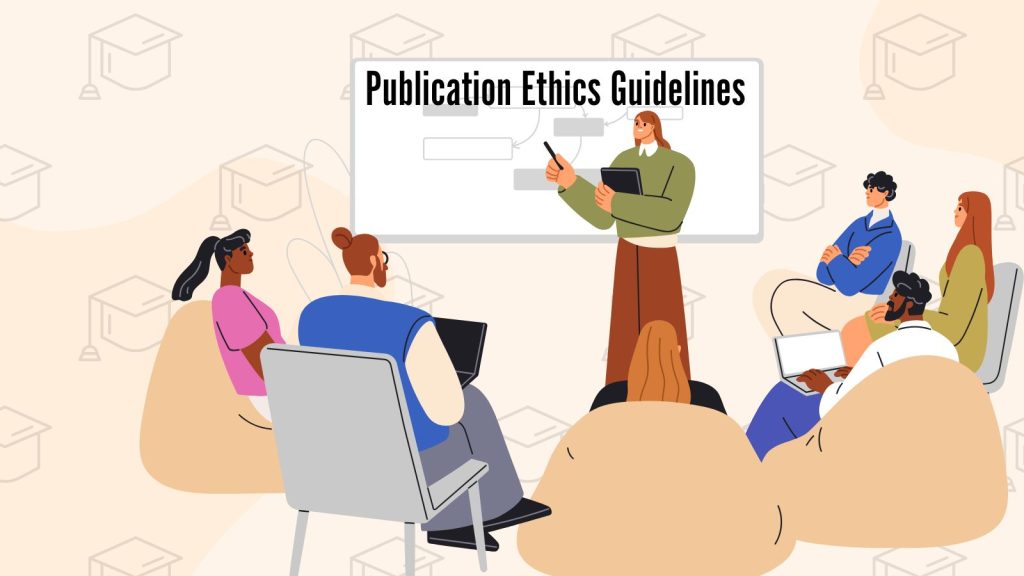Publication ethics are critical for maintaining the integrity of academic research and writing. These guidelines ensure that scholarly work is conducted and disseminated responsibly, transparently, and fairly. Below is a comprehensive overview of the top publication ethics guidelines that academic writers must follow to uphold the credibility of their work and the broader research community.
What to Wear to a Professional Conference?
Authorship and Contribution
Authorship should accurately reflect individuals’ contributions to the research and manuscript. Key guidelines include:
- Eligibility for Authorship: Only those who have made significant contributions to the conception, design, execution, or interpretation of the research should be listed as authors.
- Acknowledgment of Contributions: Contributors who do not meet authorship criteria (e.g., technical assistants or editors) should be acknowledged appropriately.
- Avoiding Ghost and Guest Authorship: Ghost authorship (omitting contributors) and guest authorship (including non-contributors for prestige) are unethical and should be avoided.
- Agreement on Author Order: All authors should agree on the order of authorship before submission, based on the significance of their contributions.
Avoiding Plagiarism and Ensuring Originality
Academic writing demands originality, and plagiarism—whether intentional or accidental—undermines trust in research. Guidelines include:
- Proper Citation: Always credit the original source of ideas, data, or text, using appropriate citation styles (e.g., APA, MLA, Chicago).
- Paraphrasing and Quoting: Paraphrase correctly with attribution, and use quotation marks for direct quotes.
- Self-Plagiarism: Avoid reusing your own previously published work without proper citation or permission from the original publisher.
- Use Plagiarism Detection Tools: Employ tools like Turnitin or iThenticate to ensure originality before submission.
Data Integrity and Research Reproducibility
Ethical research relies on accurate and transparent data handling. Key principles include:
- Accurate Reporting: Present data truthfully without fabrication, falsification, or selective reporting.
- Data Availability: Share data and materials (where feasible) to allow replication and verification of results, subject to ethical and legal constraints.
- Proper Data Management: Maintain clear, detailed records of data collection and analysis to ensure transparency.
Conflict of Interest Disclosure
Conflicts of interest (COI) can bias research and must be disclosed transparently. Guidelines include:
- Financial and Non-Financial COI: Disclose any financial (e.g., funding, grants) or non-financial (e.g., personal relationships, affiliations) conflicts that could influence the research.
- Transparency with Publishers: Include a COI statement in the manuscript, even if no conflicts exist.
- Managing Bias: Take steps to minimize the impact of conflicts on research design, execution, or reporting.
Peer Review Integrity
Peer review is a cornerstone of academic publishing, and ethical participation is essential:
- Confidentiality: Treat manuscripts under review as confidential and do not share or use their content without permission.
- Objectivity: Provide unbiased, constructive feedback free from personal or professional conflicts.
- Timeliness: Complete reviews promptly to avoid delaying the publication process.
- Disclosure of Limitations: Reviewers should disclose any limitations in their expertise that may affect the quality of their review.
Ethical Use of Sources and Citations
Proper sourcing enhances credibility and avoids ethical violations:
- Accurate Citations: Cite sources correctly to give credit and allow readers to verify information.
- Avoid Citation Manipulation: Do not engage in practices like excessive self-citation or citing irrelevant sources to boost metrics.
- Primary Sources: Whenever possible, refer to original sources rather than secondary ones to ensure accuracy.
Compliance with Journal and Publisher Policies
Each journal or publisher may have specific ethical guidelines that authors must follow:
- Submission Guidelines: Adhere to the journal’s submission requirements, including formatting, word count, and ethical declarations.
- Multiple Submissions: Do not submit the same manuscript to multiple journals simultaneously, as this violates most publishers’ policies.
- Retractions and Corrections: If errors are found post-publication, promptly inform the publisher and cooperate in issuing corrections or retractions.
Ethical Considerations in Research Involving Human or Animal Subjects
Research involving human or animal subjects requires strict adherence to ethical standards:
- Informed Consent: For human subjects, obtain informed consent and ensure participants understand the study’s purpose and risks.
- Ethical Approval: Secure approval from an Institutional Review Board (IRB) or Ethics Committee before conducting research.
- Animal Welfare: Follow guidelines like the 3Rs (Replacement, Reduction, Refinement) for ethical animal research.
- Confidentiality: Protect the privacy and confidentiality of human participants’ data.
Transparency in Funding and Sponsorship
Funding sources can influence research, so transparency is vital:
- Disclose Funding Sources: Clearly state all sources of funding, including grants, institutional support, or private sponsorship.
- Acknowledge Sponsor Role: Specify whether the funder had any role in the research design, execution, or publication.
- Avoid Undue Influence: Ensure that funding does not compromise the objectivity of the research.
Responsible Use of AI and Technology
With the rise of AI tools in academic writing, ethical use is increasingly important:
- Transparency in AI Use: Disclose the use of AI tools (e.g., for data analysis, writing assistance) in the manuscript.
- Human Oversight: Ensure human researchers verify AI-generated content for accuracy and appropriateness.
- Compliance with Journal Policies: Some journals restrict or prohibit AI use in certain contexts, so check guidelines before submission.
Adhering to publication ethics guidelines is essential for fostering trust, credibility, and progress in academic research. By following these principles, academic writers can ensure their work contributes positively to the scholarly community while avoiding ethical pitfalls. Always consult specific journal guidelines and institutional policies to align with best practices.
FAQs
What are publication ethics guidelines?
Publication ethics guidelines are a set of principles and best practices that authors, editors, and publishers follow to ensure honesty, transparency, and integrity in scholarly publishing.
Why are publication ethics important?
They help maintain trust in research, prevent misconduct such as plagiarism and data fabrication, and protect the rights of all contributors.
Who is responsible for following publication ethics?
Authors, reviewers, editors, and publishers are all responsible for upholding ethical standards throughout the publication process.
What is considered unethical in publication?
Unethical practices include plagiarism, duplicate publication, data falsification, ghostwriting, failure to disclose conflicts of interest, and improper author credit.
How can authors avoid plagiarism?
Authors can avoid plagiarism by properly citing all sources, using quotation marks when quoting directly, and using plagiarism detection tools before submission.
What is duplicate submission or publication?
It refers to submitting or publishing the same manuscript in more than one journal without informing the editors, which is a violation of ethical guidelines.
What should be disclosed in conflicts of interest?
Authors must disclose any financial, personal, or professional relationships that could influence the interpretation or outcome of their research.
What is the role of peer reviewers in publication ethics?
Peer reviewers must provide unbiased, confidential, and constructive feedback while avoiding conflicts of interest with the manuscript’s authors.
Can authors publish the same research in multiple languages?
Only with proper disclosure and permission from the original publisher, and it must be made clear that the research has been previously published.
What happens if publication ethics are violated?
Violations can lead to manuscript rejection, retraction of published articles, blacklisting of authors, and damage to academic reputation.



